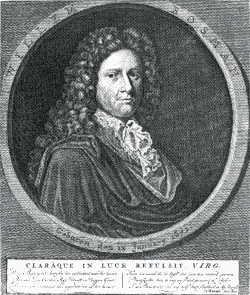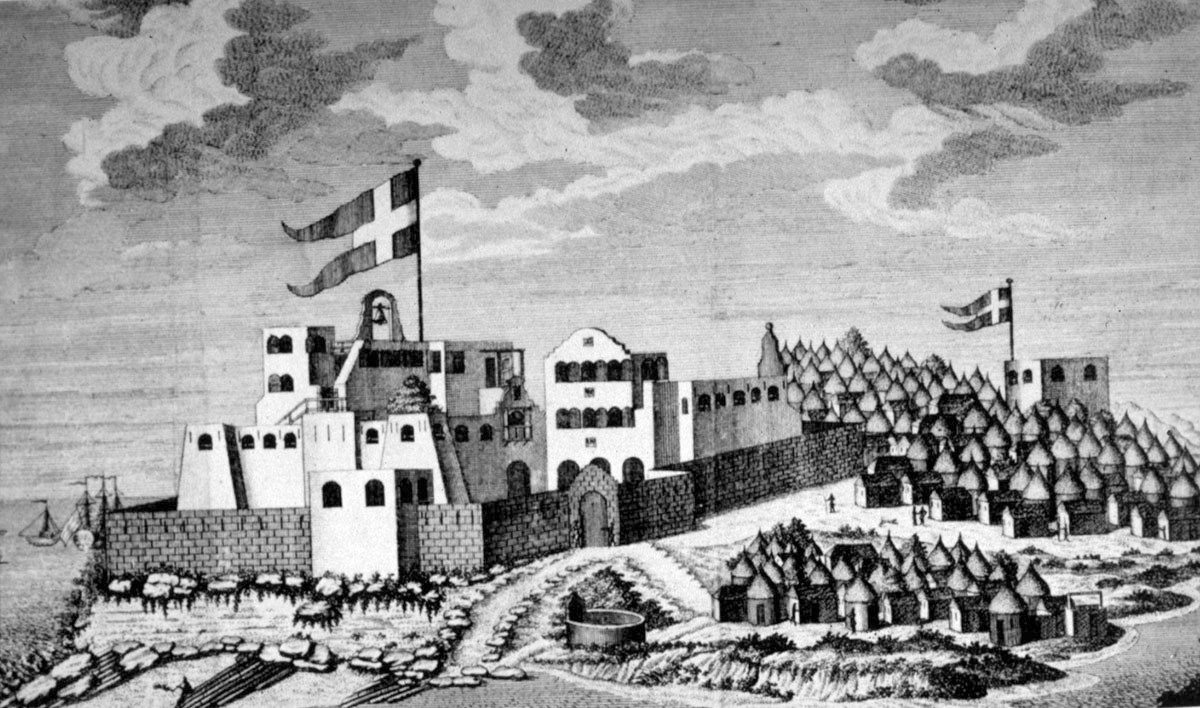|
Akwamu
The Akwamu Empire was a powerful Akan state that rose to prominence in the 17th century in what is now southeastern Ghana. According to oral tradition, the Akwamu traced their origins to the Twifo-Heman area, but the earliest historical records place them inland, straddling the Atewa Hills and controlling trade routes between the coast and the forest interior. Emerging as a dominant force in the second half of the century, Akwamu developed into an expansionist polity, exerting authority over diverse territories through military conquest, tributary networks, and control of regional commerce. At the height of its power in the late 17th and early 18th centuries, the Akwamu Empire extended approximately along the Gulf of Guinea—from Ouidah in present-day Benin to Winneba in modern Ghana. History Origins The Akwamu migrated from the region of Twifo-Heman to the forested hills of the interior—centered around the Atewa Range and parts of modern Akyem Abuakwa—in the late 16th ... [...More Info...] [...Related Items...] OR: [Wikipedia] [Google] [Baidu] |
Ghana
Ghana, officially the Republic of Ghana, is a country in West Africa. It is situated along the Gulf of Guinea and the Atlantic Ocean to the south, and shares borders with Côte d’Ivoire to the west, Burkina Faso to the north, and Togo to the east. Ghana covers an area of , spanning diverse ecologies, from coastal savannas to tropical rainforests. With nearly 35 million inhabitants, Ghana is the second-most populous country in West Africa. The capital and largest city is Accra; other significant cities include Tema, Kumasi, Sunyani, Ho, Cape Coast, Techiman, Tamale, and Sekondi-Takoradi. The earliest kingdoms to emerge in Ghana were Bonoman in the south and the Kingdom of Dagbon in the north, with Bonoman existing in the area during the 11th century. The Asante Empire and other Akan kingdoms in the south emerged over the centuries. Beginning in the 15th century, the Portuguese Empire, followed by other European powers, contested the area for trading r ... [...More Info...] [...Related Items...] OR: [Wikipedia] [Google] [Baidu] |
Akuapem Ridge , a former kingdom
Akuapem may refer to: * Akuapem people, an ethnic group of Ghana * Akuapem dialect, their language * Akuapem Kingdom Akropong is a town in South Ghana and is the capital of the Akuapim North District, a district in the Eastern Region of South Ghana. This town is known for producing snails and palm oil. See also * {{Disambiguation Language and nationality disambiguation pages ...[...More Info...] [...Related Items...] OR: [Wikipedia] [Google] [Baidu] |
Old Ningo
Old Ningo is a town in the Greater Accra Region of Ghana. History Also known as Great Ningo, the inhabitants have always been a fishing and farming community. They form part of the Ga-Adangbe people. The name Ningo has a much more widely known and accepted history as derived from the Ga–Dangme languages, Ga–Dangme words ''nu'' meaning water and ''ngoo'' meaning salt. However, there is compelling evidence pointing to a more interesting naming origin. The ''Encyclopædia Metropolitana'', published in 1817, has this entry: "Ningo, near which the second Danish castle, Friedensburg, is placed, is 43 miles from Akra. In Krob6, or Krepe, a large Negro State behind it, there is a very high mountain about 20 or 25 miles distant from the sea, and capped with snow." This provides evidence of a voyager's inspired choice of name, since Ningo in Latin means snow, and the mariners would have seen the mountain in the backdrop of the native settlers and named the place Ningo. Many other earl ... [...More Info...] [...Related Items...] OR: [Wikipedia] [Google] [Baidu] |
Dangme Language
The Dangme language, also ''Adangme'', ''Dangbe'' or ''Adaŋgbi'', is a Kwa languages, Kwa language spoken in south-eastern Ghana by the Dangme people ''(Dangmeli)''. They are part of the larger Ga-Dangme people, Ga-Dangme ethnic group. Klogbi is a variant, spoken by the Krobo people, Kloli (Klo or Krobo People). Mary Esther Kropp Dakubu, Kropp Dakubu (1987) is the most thorough grammar of the language. Classification Adangme is a Kwa languages, Kwa language, part of the Niger–Congo languages, Niger–Congo family. It is closely related to Ga language, Ga, and together they form the Ga–Dangme languages, Ga–Dangme branch within Kwa. Geographic distribution Adangme is spoken in Ghana by over 800,000 people as of 2004. It is the aboriginal language spoken in Ghana, Togo, and Benin by the people of Ada, Osudoku, Manya Krobo, Yilo Krobo, Shai, Ningo, Prampram and Kpone. Adangme is partly mutually intelligible with Ga language, Ga, and, to a lesser extent, Ewe language, Ewe. N ... [...More Info...] [...Related Items...] OR: [Wikipedia] [Google] [Baidu] |
Osu Castle
Osu Castle (also known as Fort Christiansborg or the Castle) is a castle located in Osu, Ghana, on the coast of the Gulf of Guinea in Africa. A substantial fort was built by Denmark-Norway in the 1660s; thereafter, the fort changed ownership between Denmark-Norway, Portugal, the Akwamu, Britain, and finally post-Independence Ghana. Under Denmark–Norway control it was the capital of the Danish Gold Coast, and held and dispatched enslaved people overseas. In 1902, Osu Castle became the seat of government in Ghana but this has now moved to Jubilee House. Because of its testimony to European colonial influence in West Africa and the Atlantic slave trade, the castle was inscribed on the UNESCO World Heritage List in 1979 along with several other castles and forts in Ghana. History The area was first occupied in 1550 by the Portuguese, though in the 17th century Portuguese influence diminished. The area came under the control of Sweden in the late 1640s, led by the Ger ... [...More Info...] [...Related Items...] OR: [Wikipedia] [Google] [Baidu] |
Gold Coast (region)
The Gold Coast was the name for a region on the Gulf of Guinea in West Africa that was rich in gold, petroleum, sweet crude oil and natural gas. This former region is now known as the country Ghana. Etymology and position The Gold Coast, Slave Coast of West Africa, Slave Coast, Pepper Coast (or Grain Coast) and Ivory Coast were named after the main export resources found there, respectively. Early uses of the term ''Gold Coast'' refer strictly to the coast and not the interior. It was not until the 19th century that the term came to refer to areas that are far from the coast. The Gold Coast was to the east of the Ivory Coast and to the west of the Slave Coast of West Africa, Slave Coast. Territorial entities Gold Coast region territorial entities were: * Portuguese Gold Coast (Portuguese people, Portuguese, 1482–1642) * Dutch Gold Coast (Dutch people, Dutch, 1598–1872) * Swedish Gold Coast (Swedes, 1650–1658; 1660–1663) * Couronian colonization, Couronian Gold C ... [...More Info...] [...Related Items...] OR: [Wikipedia] [Google] [Baidu] |
Ga-Adangbe
The Ga-Dangbe, Ga-Dangme, Ga-Adangme or Ga-Adangbe are an ethnic group in Ghana, Togo and Benin. The Ga or Gan and Dangbe or Dangme people are grouped as part of the Ga–Dangme languages, Ga–Dangme Ethnolinguistics, ethnolinguistic group. The Ga-Dangmes are one ethnic group that lives primarily in the Greater Accra region of Ghana. Ethnic Ga family names (surnames) include Nikoi, Amon, Kotey, Kotei, Adei, Adjei, Kutorkor, Okantey, Oblitey, Lartey, Nortey, Aryee, Obodai, Oboshi, Torgbor, Torshii and Lante. The following are names derived from the ethnic Dangme and common among the Ningos Tettey, Tetteh, Teye, Narh, Narteh, Nartey, Kwei, Kweinor, Kwetey, Dugbatey, Martey, Addotey, Addo, Siaw, Saki, Amanor, Djangba, Kabu, Kabutey, Koranteng, Nortse, Horminor. These are aligned to the ethnic Ga as well: Lomo, Lomotey, Tetteh, Ankrah, Tetteyfio, Laryea, Ayitey, Okai, Bortey, Quaye, Quaynor, Ashong, Kotei, Sowah, Odoi, Ablor, Adjetey, Dodoo, Darku and Quartey. (Dawhenya royal famil ... [...More Info...] [...Related Items...] OR: [Wikipedia] [Google] [Baidu] |
Nana Ansa Sasraku I
Nana, Na Na or NANA may refer to: People * Nana (given name), including a list of people and characters with the given name * Nana (surname), including a list of people and characters with the surname * Nana (chief) (died 1896), Mimbreño Apache chief * Nanha (painter) (), Indian painter, also called ''Nana'' * Lulu and Nana (born 2018), pseudonyms for twin Chinese girls, who are allegedly the first humans produced from embryos that were genome-edited * Nana, name used for the Ngaanyatjarra people of Western Australia Arts and entertainment Films * ''Nana'' (1926 film), a French film by Jean Renoir * ''Nana'' (1934 film), an American film by Dorothy Arzner and George Fitzmaurice * ''Nana'' (1944 film), a Mexican film by Celestino Gorostiza and Roberto Gavaldón starring Lupe Velez * ''Nana'' (1955 film), a French-Italian film by Christian-Jaque * ''Nana'' (1970 film), starring Gillian Hills * ''Nana'', the original title of '' Nana, the True Key of Pleasure'', a 19 ... [...More Info...] [...Related Items...] OR: [Wikipedia] [Google] [Baidu] |
Akwamuhene
Akwamu expansion in Ghana started between 1629 and 1710. The powerful king Otumfuo Ansa Sasraku I annexed the Guang people, Guan and took over the traditional areas of the Kyerepon. According to Akwamu tradition, Otumfuo Ansa Sasraku I, also played an important role in the life of the King Osei Kofi Tutu I, Osei Tutu I of Asante by protecting him from the Denkyera. Succession History indicates that the Akwamuhene and ''Dormaahene'' were twin brothers who were both at Akwamu. However, the two got separated after the death of the Great King Ansa Sasraku about 400 years ago when there was the need to install one of them as the next king. According to history, the kingmakers were divided over who should succeed the king. Some preferred the elder brother while others favoured the younger one. And in order to avoid any conflict, the younger one, the Dormaahene, moved out of Akwamu with his supporters and journeyed through various parts of the country and finally settled at present day D ... [...More Info...] [...Related Items...] OR: [Wikipedia] [Google] [Baidu] |
Willem Bosman
Willem Bosman (12 January 1672 – after 1703) was a merchant in the service of the Dutch West India Company, spending most of his time in the Dutch Gold Coast. Bosman was born in Utrecht. Although he sailed to the Gold Coast as an apprentice when he was only 16 years of age, he managed to climb the ranks and eventually became head merchant ( Dutch: ''opperkoopman''). In 1702 he sailed back to the Dutch Republic, and little is known of his later life. Bosman is best known for his description of the Gold Coast titled ''Nauwkeurige beschrijving van de Guinese Goud- Tand- en Slavekust'' (An accurate description of the Guinean Gold, Ivory and Slave Coast) published in 1704. This document remained the most authoritative description of the area for more than a century and provided significant detail of the Komenda Wars in which Bosman took part. He described in detail the functioning of the slave trade and commented of Fida that "markets of men are here kept in the same manner as t ... [...More Info...] [...Related Items...] OR: [Wikipedia] [Google] [Baidu] |
Danish Gold Coast
The Danish Gold Coast ( or ''Dansk Guinea'') comprised the colonies that Denmark–Norway controlled in Africa as a part of the Gold Coast (region), Gold Coast (roughly present-day southeast Ghana), which is on the Gulf of Guinea. It was colonized by the Dano-Norwegian fleet, first under indirect rule by the Danish West India Company (a chartered company), later as a crown colony of the kingdom of Denmark-Norway. The area under Danish influence was over 10,000 square kilometres. The five Danish Gold Coast Territorial Settlements and forts of the Kingdom of Denmark were sold to the United Kingdom of Great Britain and Ireland, United Kingdom in 1850. Denmark had wanted to sell these colonies for some time as the expenses required to run the colonies had increased following the abolition of slavery. Although Britain was also struggling with rising costs, it sought to purchase them to reduce French colonial empire, French and Belgian colonial empire, Belgian influence in the region, ... [...More Info...] [...Related Items...] OR: [Wikipedia] [Google] [Baidu] |




